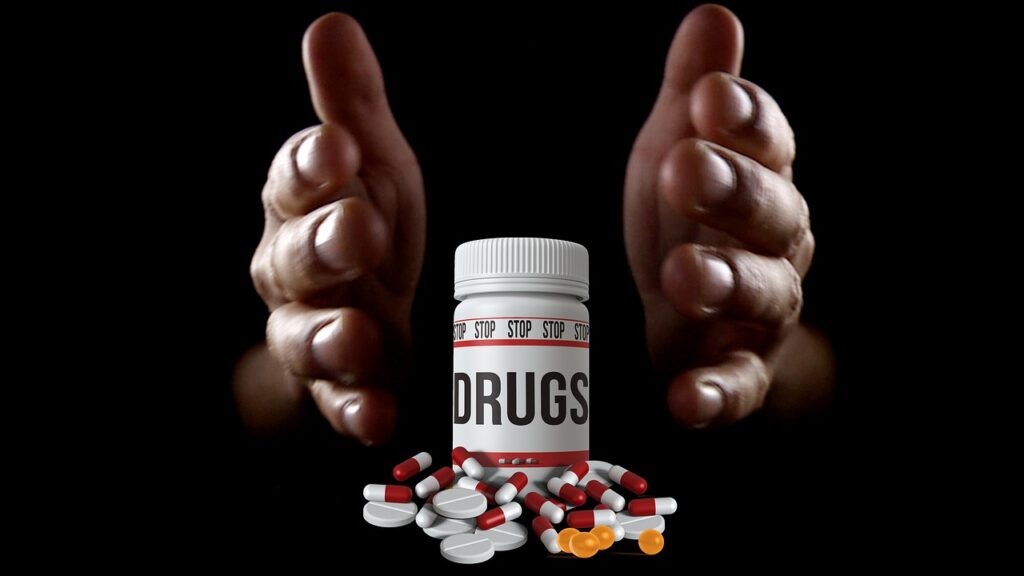
Table of Contents
Recovering from addiction is not at all an easy journey. It takes much willpower and perseverance for one to bear through the withdrawal symptoms and other challenges in the addiction recovery path. It is why they need family and friends around.
People often find it hard to watch their loved ones going through drug addiction. Although many try to help out the addict, it can lead to enabling them sometimes. Without a proper understanding of addiction and its basics, it can be difficult for you to support your loved one’s journey to recovery.
Here are some vital information on substance use disorder and addiction. It will help you be prepared for any challenges that may come while assisting your loved one in recovery.
Understanding Drug Use and Addiction: Get Your Loved One a Way Out from Drug Addiction
A drug addict’s family needs equal help as that of the addict. It is possible to observe that addicts’ changing behaviors affect family relations deeply. One of the significant consequences of drug addiction is problematic family relations. The family of an addict can get deeply hurt by the acts of the addict and the social stigma they have to face.
So, when an addict embarks upon the journey to recovery, the entire family must be on board. Family and friends can immensely help out in the treatment of drug addiction. They can also help with avoiding the chance for the patient to develop an addiction again.
Family therapy is one of the most effective aspects of substance abuse treatment. Family can quickly identify the reasons around the patient that lead to addiction. But to get the necessary help for the patients, the family needs to understand the science of addiction. They need to know the drug misuse symptoms, effects of the drug problem, types of drugs, drug use disorder treatment programs, etc.
The following sections detail the basics of alcohol or drug addiction. They trace how illicit drug users take the drug to spoil their health gradually. The sections also provide effective suggestions on recovery as per the treatment programs of the Drug Enforcement Administration and the coveted National Institute on Drug Abuse.
Drug Addiction and Substance Use Disorder
Drug addiction is a severe condition characterized by the constant drug seeking behavior of a person. It is a relapsing condition if not taken proper addiction medicine or therapy. The risk for drug addiction is very high in young adults. They are easily influenced by peer groups and other social conditions.
Drug addiction includes different stages. What starts as a pleasure-giving experience gradually turns into drug misuse and addiction. People struggling with addiction find it difficult to avoid repeated drug use. After the initial drug use itself, the development of drug addiction begins.
The risks of drug use primarily lie in the amount of the drug consumed. Alcohol and drugs, when consumed in high quantities, affect the brain. The brain convinces the consumer to take more of the drug. High drug use causes severe vulnerability to drug addiction.
People associated with drug use can control their drug use patterns through various treatment options. Drug addiction is considered treatable by many. Substance use and addiction are preventable through counseling and similar options.
As addictions affect your brain, it might take some serious time for the treatment of substance use to complete. To avoid the risk of drug use relapse, the intervention should be proper and effective.

Drug Abuse: Risk Factors
It is not possible to pinpoint the reasons that can lead to addiction in one person. Because the likelihood of someone’s development of addiction is dependent on their personal life. Adolescent drug use, family history of addiction, previous drug use, etc., are some very common risk factors for developing addiction to opioids or other drugs.
Here are some commonly observed factors that pose a greater risk of drug addiction.
- Lack of family supervision
- Experimentation with prescription drug
- Peer pressure
- High availability of alcohol or other drug
- Poverty
- Family history of drug addiction
- Mental health and addiction issues
- Early drug use
Drug Abuse and Addiction: Signs and Symptoms
The symptoms of drug use disorder and the signs of addiction include the following.
- Uncontrollable urge to use the drug of choice
- Sense of euphoria when the drug is taken
- Overdosage of alcohol and illicit drug
- Lack of social skills
- Physical health issues
- Problems at workplace
- Lack of interest in daily activities
- Behavioral changes
- Neglect in health and hygiene
Addictive Drug Craving: Mental Disorder and Mental Health
Substance use addiction can lead to severe mental health issues. Drugs essentially affect the human brain and its functions. The change in brain function can lead to multiple mental health disorders.
The absence of social relations due to drug addiction can worsen any pre-existing mental health conditions, too. People struggling with addiction and severe mental health issues need to take proper treatment, including behavioral therapies.
There are different kinds of behavioral therapies that can help with the mental health issues caused by addiction. Some of them are as follows.
- Cognitive behavioral therapy
- Assertive community treatment
- Dialectical behavioral therapy
- Multidimensional family therapy
- Strategic family therapy
Consequences of Drug Overdose
Drug overdose is a situation where a person consumes fatal amounts of drugs. People using illicit drugs often misjudge the amount and consume them accidentally. Consumption of heavy doses of drugs can lead to severe health problems and even death.
Symptoms of drug overdose are as follows.
- Confusion
- Sleepiness
- Coma
- Drop in pulse rate
- Nausea
- Vomiting
- Belly pain
- Sweaty skin
- Chest pain, etc.
Seek Help for Drug Addiction: Treatment Options
As mentioned, addiction is treatable. Family and friends can have a major role in effectively treating substance use addiction. Many researchers worldwide have contributed to numerous treatment options for addiction.
There are different ways to treat an addiction. Some of them are discussed in detail below.
Medication
Medication is one of the most effective ways to treat the withdrawal symptoms and other effects of drug addiction. Medications are available to help the patient not relapse into substance use again.
Some of the common medications used for opioids and other addictions are as follows.
- Methadone
- Lofexidine
- Bupropion
- Disulfiram
- Acamprosate
- Buprenorphine, etc.
Behavioral Therapy
Behavioral therapies help a recovering addict correct their existing behaviors and habits. These therapies also help them to develop positive and healthy habits and behaviors. All the behavioral changes involved in these therapies aim at avoiding substance abuse.
Final Word: Use Drugs Responsibly
Even though drug addiction is a chronic condition, it is possible to save an addict through proper drug treatment. Residential treatment, family therapies, etc., are some of how addiction may be controlled. Illicit drug use and health are closely connected. Using a drug in moderation will help preserve your health. To reduce drug issues, including addiction, the complete cooperation of the addict is necessary. Drug-seeking and use have the possibility of relapsing. So, recovered addicts should make a conscious decision not to return to drug use.
FAQs
The major signs of addiction include physical weakness and severe mood swings. Addicts will also start feeling disinterested in their personal and professional lives. The lack of social involvement is a clear sign of substance use addiction.
Peer pressure does increase the risk of addiction. In fact, it is one of the most contributing reasons for adolescent drug addiction. Young children find it pretty difficult to refuse to peer suggestions and pressures. What begins as a simple drug experimentation can lead to full-fledged addiction in such scenarios.










